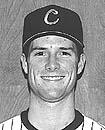"We know the donor community," Mogulof says. "The people who have the capacity for significant contributions and their history are well known to us. And we were in contact with far more people than just a single individual. As we got toward the deadline, we saw that they had raised only half of what was necessary to reinstate all five teams."
The amount of money necessary for reinstatement is perhaps the biggest bone of contention between Nickle and the university. Nickle and Mogulof agree that enough money had been pledged to continue baseball for two years. But Mogulof says that the university has always stipulated that enough funds had to be raised to sustain any individual team for at least seven years in order to avoid being cut.
"The chancellor and administration made it clear that they had to raise 25 million for all five teams for seven to 10 years. They (the baseball donors) want us to take the money and accept their assurance that somehow they'll be able to achieve this level of fund-raising every two years. The chancellor has made it clear that our current financial situation does not allow for short-term thinking or acceptance of significant risk."
But still, isn’t two years better than none?
“Two is not better than none if you have a program continually living with a dagger over its head," Mogulof says.
"If they’re worried about what happens in two years from now, then they have no confidence in their ability to work with the alumni," says Nickle. He believes the university wants to meet now because of disgruntled big donors upset over the loss of baseball.
“People are pulling donations due to this decision,” he contends. “Some people who have willed their estates to Cal say they won’t do it now. It’s not just some emotional issue. The university is failing to grasp how much they will lose in the long run."
“There’s no doubt that there are individuals closely connected to the baseball program who are upset," says Mogulof. "And their reaction may indeed be influencing their philanthropic choices. But in the context of a campus that receives in the neighborhood of 350 to 400 million dollars in contributions, we haven't seen a serious diminution in philanthropy."
Mogulof acknowledges that Nickle was an important player in the fund-raising effort and says the university wants to work with him. He cautions, however, that for any additional effort to be successful, it would still have to meet the criteria set out by the chancellor —pledged donations that will sustain the program for at least seven years.
For his part, Nickle—who was a non-scholarship player for Cal in the mid-'90s and had 20 relief appearances for the Phillies and Padres between 2000 and 2002—is straddling the line between confrontation and co-operation. "We're not interested in fighting the university," he says. "But we will fight for the university."
(And as for Cal's opening day against visiting Utah? After rain-outs Friday and Saturday, the 17th-ranked Golden Bears swept a double-header today. They also received a steady flow of contributions at a "Save Cal Baseball" table outside the gate.)
KQED News Editor Dan Brekke contributed to this report.
